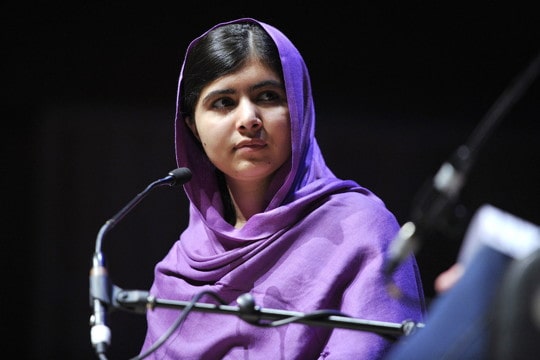

The Pack contains associated resources for the learning experience, typically in the form of articles and videos. There is a teacher Pack (with only teacher information) and a student Pack (which contains only student information). As a teacher, you can toggle between both to see everything.
Here are the teacher pack items for Human Rights Leaders Around the World:


Overview In this experience, students first analyze a statement made by Malala Yousafzai. Next they read an article introducing some key human rights advocates. Then they choose an individual, develop a guiding question, and write a case study about the person. Students were guided through the steps of choosing a topic, researching it, and writing a case study in an earlier experience, “Case Study: Japanese Imperialism.” This experience summarizes the steps without going into detail, If necessary, refer students to the link in the Student Pack: Guidelines for Historical Research and Writing. There is no quiz at the end of the experience. Instead, students will self-evaluate their work using a rubric. The rubric is available in the Student Pack for students to review before they begin work on their case studies. At each stage, give students a time framework for their tasks. Be sure to set the duration of the experience to fit your projected time framework. Objective
Governments may honor or abuse human rights. Individuals may fight for these rights and make a major impact on the lives of many people. In this experience you will encounter individuals from around the world who are working to advance human rights.
Objective

Do you recognize the young woman in this photo? Post her name or a short phrase describing why she is famous.
The photograph is of Malala Yousafzai, the Pakistani female education activist who won the 2014 Nobel Peace Prize. She said about her work: “I don't want to be thought of as the ‘girl who was shot by the Taliban’ but the ‘girl who fought for education.’” Education and freedom of speech are important tools—or weapons in the war against oppression—for obtaining human rights.
Now watch this movie trailer for the film, He Named Me Malala.
Malala once stated: “Let us pick up our books and our pens, they are the most powerful weapons.” Why do you think she considers book and pens as weapons?
Sample answer:
Education (represented by books) is a powerful tool that teaches people to think and find solutions. Educated people are more likely to take a stand against oppression. Pens are weapons because authors can inspire people or publish truths that governments may try to hide.
